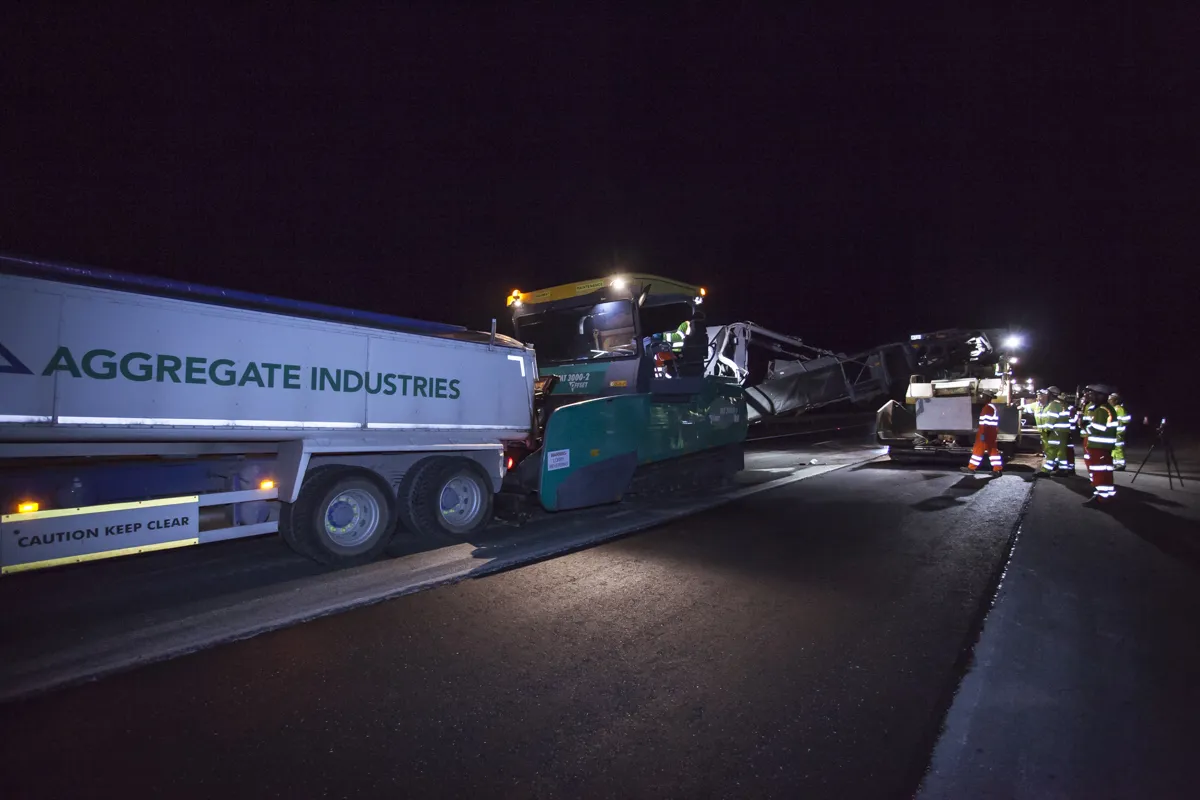This trial will determine how the stretch of highway, located between junction 22 and junction 23, behaves in terms of running wear, skid resistance and resistance to changes in temperature. The trial has been funded by Highways England to see whether crumb rubber from tyres can help provide a sustainable solution for road construction. Waste tyres from vehicles currently take up enormous space in landfill and provide a major concern with regard to fire safety and pollution. Being able to reuse the rubber from vehicle tyres in asphalt mixes would deliver an important solution for sustainable road construction and transport, as well as reducing waste disposal needs and the risk of fire or pollution.
Crumb rubber has been used extensively in asphalt mixes around the world, most notably in the Western US states of Arizona and New Mexico.
Around 40 million waste tyres from vehicles are produced/year in the UK and over 500,000 disused tyres are shipped out of the UK each year to be landfill. However, EU rules ban the disposal of tyres in landfill sites so these scrap tyres instead are transported to the Middle East and Asia. There are over seven million tyres filling a site in Kuwait.
Tarmac estimates that, depending on the thickness of the surface layers, up to 750 waste tyres/km of road could be used with the material.
Tarmac tyre trial on UK motorway
Highways England is carrying out trials of rubberised asphalt on a busy stretch of UK motorway. A section of the M1 near the city of Leicester has been repaved by contractor Tarmac, using a special asphalt mix containing crumb rubber from recycled motor vehicle tyres. Tarmac has developed the mix specially to meet tough requirements from Highways England.
This trial will determine how the stretch of highway, located between junction 22 and junction 23, behaves in terms of running wear, skid resistance and
August 7, 2019
Read time: 2 mins







